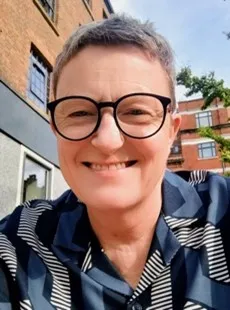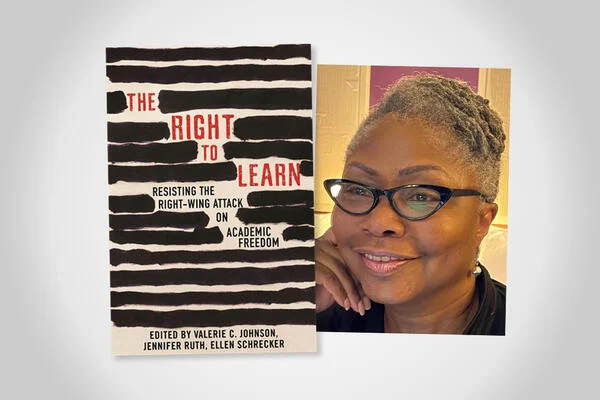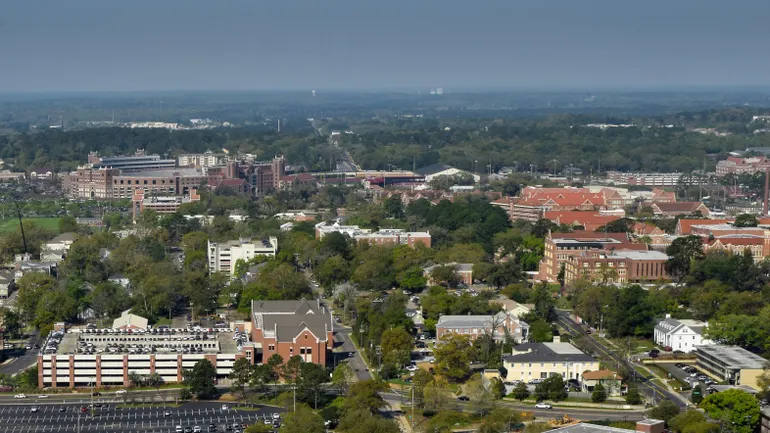In the evolving landscape of higher education, centers and institutes dedicated to teaching and learning can no longer be viewed as optional support units; they have become critical engines driving academic innovation at scale. Success in this mission depends on rethinking legacy structures, fostering a culture of collaboration across schools and colleges, identifying opportunities that deliver broad impact, and remaining grounded in the core principles that make teaching truly effective: clarity, engagement, reflection, inclusivity, adaptability, support and rigor.
Wendy Colby, Vice President and Associate Provost at Boston University, leads BU Virtual and BU’s new Institute for Excellence in Teaching and Learning. The Institute was established to chart a new vision and approach, thoughtfully reconstituting and expanding the role of several former units such as a Center for Teaching and Learning and Digital Learning Innovation. The goal—to create a university-wide nexus for advancing teaching and learning excellence and academic innovation.
In part one of our conversation, Wendy and I talk about the role of academic innovation centers for teaching and learning (CTLs) within the university ecosystem.
Courtesy Wendy Colby
Q1: What does it take to conceive and build a new Institute that truly advances academic innovation and delivers on the promise to create more impact across a faculty community—especially one as large and diverse as you have at Boston University?
A: It’s interesting. I approached the leadership of the Institute in the same way I approach any new leadership assignment. It started with a lot of listening—being out in the community, talking with faculty and students, and learning what was working well and where challenges persisted. I sat in on classes and was invited to guest lecture in a few. I saw some truly exceptional examples of teaching at its best, and I also examined how faculty and students were—or were not—using technology and tools to support the learning experience.
Needless to say, I learned a great deal. I saw where innovation was thriving, and where faculty were often tackling similar challenges independently, without a shared platform for collaboration or access to scalable resources. I also saw the importance of leadership and advocacy at the top—working closely with deans and academic leaders to align on shared goals and priorities. It became clear that we needed to create the conditions for faculty to feel that this was an Institute by them and for them.
From those early observations, we began to define what the Institute needed to be. We established a Strategic Advisory Council and an Institute Faculty Liaison group, comprised of faculty champions from across our schools and colleges. We also formed close alliances with key partners—most notably the Office of Undergraduate Affairs and the Dean of Students—to clarify the Institute’s role in student success and the broader student experience. These partnerships, built early in the Institute’s formation, have been essential to creating the conditions for success.
Ultimately, what emerged most clearly is that our success depends on shared ownership. Impact at this scale cannot be achieved by any single unit alone. In a university comprised of many distinct academic and operational units, each with its own priorities and ways of working, collective alignment is not automatic—but it is powerful. When we operate as a connected university, able to harness, contribute to, and amplify the extraordinary work already happening across our community, the potential for impact is far greater than the sum of its parts.
Q2: What are some of the initial initiatives you have created at the Institute, and how are these fostering meaningful faculty engagement and better student experiences?
A: I’ll start by saying that I’ve now spoken with many leaders at other institutions who are either leading similar centers or institutes or working to transform their own in more meaningful ways. A common theme I hear is that these units often have incredibly talented teams—frequently comprised of former faculty—who work hard to develop thoughtful programming, offer workshops and create resources grounded in evidence-based pedagogy. Yet, too often, their impact is limited. They struggle to establish a clear institutional identity; they compete for faculty attention; and they tend to reach only a small subset of the community. Historically, that was a challenge we faced at BU as well.
So, in addition to establishing a new vision and direction for the Institute—and situating it in a more central, visible location on campus—we organized our initial work around a small number of shared, strategic initiatives designed for scale, coherence and broad relevance.
One of the Institute’s core initiatives is a campus-wide focus on AI in teaching and learning, developed in close collaboration with the AI Development Accelerator (AIDA) —a new center created to position Boston University at the forefront of leadership in AI. By combining the AIDA’s strategic and technical expertise with the Institute’s focus on pedagogy, faculty engagement and evidence-based practice, this collaboration enables a coordinated, university-wide approach to education, experimentation and responsible integration of AI into teaching and learning. Early efforts include the launch of a new AI at BU online certificate available to all undergraduate students, as well as discipline-specific studio sessions, guidance and resources designed to help faculty integrate AI thoughtfully into curriculum, assessment and classroom practice.
Another flagship effort is the Classroom LX (Learning Experience) Transformation Initiative, which was created to address the overall student experience across courses and programs. Through early listening sessions with faculty and students, we identified a recurring challenge: While individual instructors were doing excellent work, students often encountered inconsistent experiences from course to course—particularly in the use of digital platforms, learning resources, communication norms and expectations. These inconsistencies created unnecessary friction for students and additional work for faculty.
The Classroom LX initiative focuses on establishing shared principles, practices and design patterns that enhance the learning experience without constraining academic freedom. By providing faculty with common frameworks, toolkits and support for course design—especially in high-enrollment and foundational courses—we aim to reduce friction, improve clarity and engagement, and create more inclusive and supportive learning environments. Importantly, this work is codeveloped with faculty, grounded in evidence-based pedagogy, and designed to scale across disciplines while remaining flexible enough to meet individual needs.
Together, these initiatives are just a few examples of the shift we are making from isolated programming to intentional, institution-wide efforts that support faculty, improve student experiences and create lasting impact at scale.
Q3: Looking ahead, what role do you see Institutes like this playing in the future of higher education, and what lessons might other universities take from this work?
A: I believe teaching and learning institutes must evolve from “centers of excellence” into strategic engines that help drive institutional priorities. Our role extends beyond faculty support and engagement alone—it is about connecting pedagogy, scholarly research, technology, the student experience and career readiness. We are also addressing themes like digital wellness and the growing connection between student wellness and academic success. Institutes like ours sit at the intersection of academic mission and institutional change.
At a time when higher education faces significant disruption, our institutes have an opportunity to accelerate long-needed conversations about curricular innovation, assessment in the age of AI, learning design, inclusion and wellbeing, and what it truly means to educate students in a rapidly changing world. Our teams are uniquely positioned to guide and partner on this work thoughtfully and responsibly.
At the same time, there is no single blueprint for success. Every university has its own culture, structures, and constraints, and meaningful change must be grounded in that reality. For me, the work always begins with learning and listening—being present in classrooms, engaging faculty and students, and observing teaching and learning in practice. You are rarely handed a clear roadmap. Instead, the work requires synthesizing what you hear, identifying recurring patterns and shared challenges, and distinguishing between isolated issues and opportunities for broader impact. That sense-making—turning complexity into clarity—is a critical leadership skill in and of itself.
Equally important is building coalitions early. Sustainable impact depends on strong partnerships with academic leaders, deans, faculty and students, and on creating shared ownership around priorities and outcomes. When institutes are able to convene communities, align stakeholders and design initiatives that respect academic autonomy while supporting scale, they can become powerful catalysts for change. Ultimately, the lesson is that teaching and learning innovation succeeds not through mandates or isolated programs, but through trust, collaboration and a sustained commitment to improving the educational experience for all learners.








